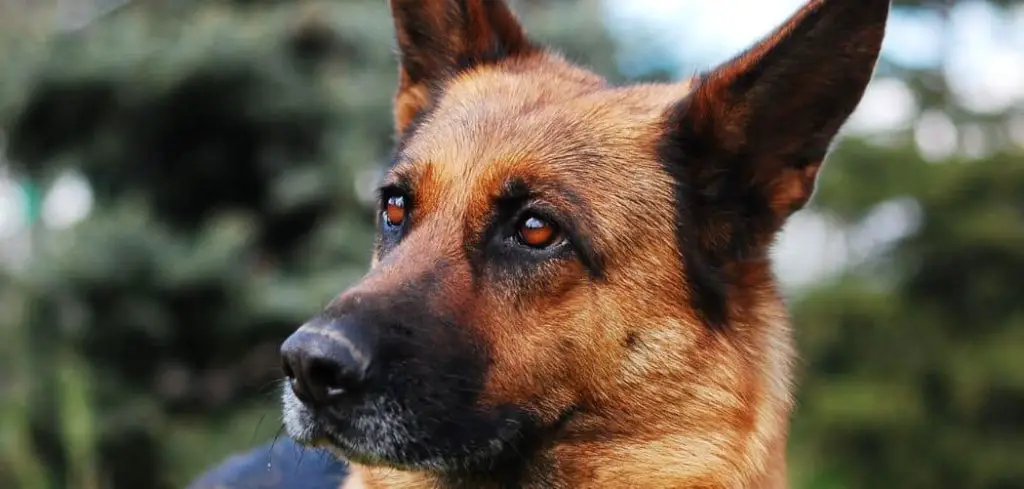When an old dog is not eating but drinking water and vomiting, it signals a concerning combination of digestive upset and potential systemic illness.
While hydration continues, persistent vomiting and appetite loss can quickly lead to weakness, dehydration, and electrolyte imbalances.
We outline the common reasons why an old dog may not be eating but drinking water and vomiting, what you can do at home, and when to seek veterinary help.
Old Dog Not Eating but Drinking Water and Vomiting — Why It Happens
An old dog not eating but drinking water and also vomiting is usually a sign of gastrointestinal, metabolic, or systemic issues. Common causes include pancreatitis, kidney or liver disease, infections, gastrointestinal irritation, or dietary indiscretion.
Continued drinking helps maintain hydration temporarily, but persistent vomiting and food refusal require prompt attention.

Old Dog Not Eating but Drinking Water and Vomiting: Common Causes
Pancreatitis
Pancreatitis, inflammation of the pancreas, is common in older dogs and can cause nausea, vomiting, and loss of appetite.
Dogs may drink water to compensate for mild dehydration but avoid food due to abdominal discomfort. Signs include lethargy, bloating, abdominal pain, and occasional diarrhea.
Prompt veterinary care, including fluids, medications, and specialized diets, is essential to prevent severe complications.
Read more: Old Dog Not Eating and Vomiting (Here’s Why)
Kidney Disease
Kidney dysfunction can cause nausea, vomiting, and appetite loss while maintaining thirst.
Other signs may include frequent urination, weakness, and weight loss. Dehydration can develop quickly if vomiting continues, even with water intake. Early detection and management, including hydration support and dietary adjustments, help slow progression.
Liver Disease
Liver disease may reduce appetite and trigger vomiting while dogs continue drinking.
Signs may include jaundice (yellow gums or eyes), lethargy, and abdominal discomfort. Drinking may help flush toxins, but ongoing food refusal indicates the liver is under stress. Veterinary evaluation is crucial for diagnosis and supportive care.
Gastrointestinal Upset
Dietary indiscretion, gastritis, or inflammatory bowel conditions can trigger vomiting while dogs maintain thirst.
Signs include retching, abdominal discomfort, and reduced appetite. Chronic irritation can worsen without treatment, leading to dehydration and malnutrition.
Veterinary assessment can identify the cause and guide treatment, which may include medication or dietary management.
Infections
Systemic infections can cause nausea, vomiting, and appetite loss while thirst persists.
Older dogs may also show lethargy, fever, or weakness. Early detection and treatment with fluids and medications are critical to prevent complications.
Toxin Ingestion
Accidental ingestion of harmful substances can cause vomiting and reduced appetite in older dogs.
Even if the dog drinks water, toxins can affect organ function and overall health. Signs may include drooling, lethargy, tremors, or collapse. Immediate veterinary attention is essential.
Read more: Old Dog Not Eating but Drinking Water (Here’s Why)
What to Do If Your Old Dog Is Not Eating but Drinking Water and Vomiting
Ensure your dog has access to fresh water and a quiet, comfortable space to rest.
Offer small, bland meals like boiled chicken or rice once vomiting has subsided for several hours, under veterinary guidance.
Monitor for signs of dehydration, including dry gums, lethargy, or sunken eyes, and avoid over-the-counter medications unless advised by a vet.
Track frequency of vomiting, water intake, and behavior changes to share with your veterinarian.
When to Call or Visit Your Vet
Immediate veterinary care is needed if your dog:
Vomits persistently or refuses all food
Shows lethargy, weakness, or collapse
Has blood in vomit or diarrhea
Shows signs of pain or bloating
Prompt evaluation helps identify underlying causes such as pancreatitis, organ disease, infection, or toxins and prevents rapid deterioration.
Read more: Old Dog Not Eating (Causes and what to do)
Key Takeaway
When an old dog is not eating but drinking water and vomiting, it indicates potential digestive or systemic issues requiring timely intervention.
Supportive care includes hydration, rest, and small bland meals, but veterinary evaluation is essential.
Early diagnosis and treatment prevent dehydration, malnutrition, and other complications, ensuring your senior dog remains as comfortable and healthy as possible.
